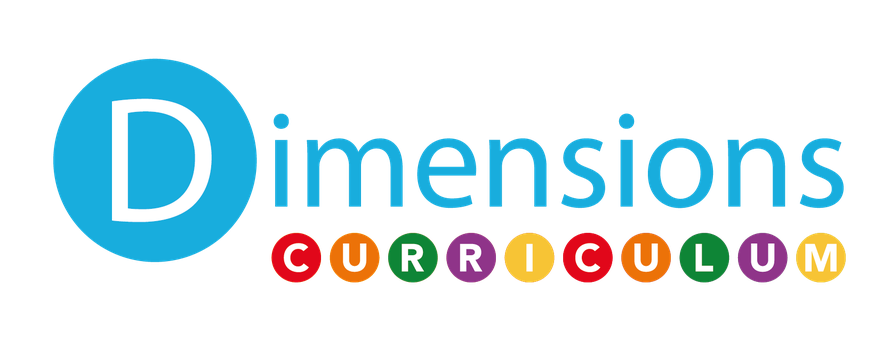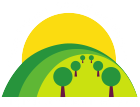Curriculum Information
'Bringing out the best in everyone'

Intent
At Grove Primary School and Nursery, we have high expectations of all our children. We want our children to become skilled readers, confident writers, mathematicians, scientists, artists, historians, geographers, musicians, linguists, athletes, designers, inclusive and diverse. We want our children to have no limits in learning, articulate what their ambitions are and embody our core school values. Every child is recognised as a unique individual at our school, we celebrate and welcome the differences within our school community. The ability to learn is underpinned by the teaching of basic skills, knowledge, concepts and values. We constantly provide enhancement opportunities to engage learning and believe that childhood should be a happy, investigative and enquiring time in our lives where there are no limits to curiosity and there is a thirst for new experiences and knowledge. We promote positive attitudes to learning, which reflect the values and skills needed to ensure responsibility for learning and future success.
Our curriculum has been designed to:-
- recognise children’s prior learning
- provide first-hand learning experiences
- allow the children to develop interpersonal skills
- build resilience
- become creative, critical thinkers
We feel passionately that our children leave school with a sense of belonging to a tightly knit community where they have the confidence and skills to make decisions, self-evaluate, make connections and become lifelong learners. Our curriculum offers a wide range of inspiring, engaging and exploratory learning experiences which include developing cultural capital through planned activities, such as residential trips. We aim to raise pupils’ aspirations by teaching them about human creativity and achievement and we strive to help our pupils understand the impact we have on the world we live in, not just at school, but as educated citizens, not just within their own community but on a wider global scale.
Rationale for Implementation
We use Dimensions ‘Learning Means the World’ Curriculum as the vehicle for this, with a view to changing our pupils’ hearts, as well as their minds. Whilst providing full National Curriculum coverage, this curriculum is underpinned by four highly relevant world issues, known as the four Cs:-
- Culture
- Communication
- Conflict
- Conservation
Communication
We believe that learning to communicate and learning to listen are the keys to success, not just academically, but socially and emotionally too. This includes developing conversation skills by teaching pupils how and when to talk. Our pupils are keen to expand and deepen their vocabulary, so in order to ensure that they experience new words on a regular basis, we ensure an emphasis is placed on new, exciting vocabulary across all subjects. We believe good communication skills are necessary tools in order to not only fully access the broader curriculum, but to succeed in later life.
Culture
Community involvement is an essential part of our curriculum as we celebrate local traditions, learning new skills to enable the children to take an active role in events throughout the year. As a predominantly White British demographic, we want our pupils to value the diversity that exists in society, to understand the roots and importance of cultural heritage on a wider scale and to behave in a respectful and tolerant way towards others, regardless of faith, gender, sexuality, ethnicity or background. We actively and explicitly promote cross-cultural friendship, respect, understanding and tolerance through our ‘Learning Means the World’ Curriculum.
Conflict
Pupils need to learn how to handle conflict well, realising that it is important to develop empathy in order to develop positive relationships in their immediate home and school environments, as well as in the wider community. They need an appreciation of other opinions and perspectives in order to learn how to address conflict and develop the necessary skills to resolve it.
We also want them to understand the wider impact of conflict globally, broadening their own knowledge and perspectives.
Conservation
Children understand the importance of conservation but need to be more invested in it. Sustainable action is being taken in school and we are in the process of relaunching our eco-school status! Throughout the academic year of 2022-2023, knowledge of how to make the world a better place will take priority through a curriculum that makes sustainability and stewardship central.
Curriculum Organisation
At Grove Primary School and Nursery, using Dimensions – Learning Means the World curriculum, we have developed a thematic approach to learning, which not only addresses all aspects of the National Curriculum, but engages and interests our children. Some subjects are taught as part of this thematic sequence of learning, but some subjects are taught discretely. The timetable has been carefully considered to ensure that our children experience a broad range of subjects and knowledge.
The following subjects are taught thematically:
- Science
- History
- Geography
- Art
- Design Technology
- Computing
- Music
The following subjects are taught discretely:
- English
- Maths
- Religious Education
- Physical Education
- Modern Foreign Languages (French)
- PSHE
You will receive a new curriculum newsletter about the curriculum your child will be studying every time the reach a new 'theme'. If you have any other queries or questions about the learning in your child's class, please contact the class teacher and make an appointment.
Safeguarding and the Grove Curriculum
The safety and wellbeing of children is at the heart of everything we do at Grove Primary School and Nursery. Opportunities are identified in the taught curriculum for children to learn about how to keep themselves and others safe and enable them to contribute positively beyond our school community.
Our bespoke and broad curriculum provides opportunities to experience life in its diversity, to acquire knowledge, understanding and skills to ensure personal development. Personal safeguarding skills are supported by the Behaviour Policy to ensure that our vision ‘Bringing out the best in everyone’ is achieved.
The ‘Jigsaw’ PSHE curriculum covers all areas of Safeguarding. From their earliest starting point, safeguarding strands are revisited and further developed every year. Our knowledge of our children ensures that sensitive strands are taught at an age appropriate level. Where necessary, small group or 1:1 teaching opportunities are provided.
Children are challenged to think carefully about safeguarding matters and to question the world around them, as well as the impact of their individual choices and behaviours. Physical and mental wellbeing is actively promoted.
We follow a ‘4Cs’ curriculum to further develop an awareness of safeguarding matters through 4 core concepts: communication; conflict; culture; conservation. All pupils are taught the skills to explore British Values, personal rights and responsibilities and are made aware of moral concepts that have an impact on us all, whether at a local or global scale.
A programme of practical safeguarding activities, often working with specialist external providers, are used to support the curriculum:
- Road and rail safety
- Bike-ability
- Pool and water safety in the PE curriculum
- Fire awareness and visits to Malvern Fire Station
- Visits to school from medical staff
- Work with our Community Support Officers to respond to local issues
- Work with charities such as NSPCC, Macmillan and The Dogs’ Trust
- A 2 year programme of high school transition opportunities, with additional support for children with SEND.
- Plays and shows
- Termly assemblies for Jigsaw and the 4Cs curriculum to promote whole school awareness
- Promoting personal risk assessment skills through visits, as well as during play and outdoor learning
- The safe use of technology
We have developed a nurturing and supportive learning environment in which children feel safe to express their views, seek support and help others. The promotion of equality of opportunity for all helps to prevent any form of direct or indirect discriminatory behaviour.
The Behaviour Policy promotes positive behaviour choices in order to ensure all children can learn and feel safe. Class circle times are for sharing ideas, recognising and celebrating success. However, they are also a time for reflection and to respond to safeguarding matters if they arise.
Assemblies are carefully planned to promote our school values:
Ready Respectful Safe
Within these values, safeguarding matters are promoted. For example, we promote our child-friendly ‘Anti-Bullying’ policy and use reflection time to reflect on the theme of each assembly. We also work with the NSPCC to deliver the 'Speak Out Stay Safe' programme.
Staff and children act quickly to challenge stereotypes and the use of derogatory language is not accepted in school and beyond. It is a core aim to provide our children with experiences beyond their local community and promote a cultural awareness of life outside of Malvern.
Please follow the link below to find the Department for Education's statutory guidance on the primary curriculum.
If your child has special eductional needs, please see the separate S.E.N section of our website that explains our approach to equality and how we ensure our curriculum is accesible for all children.
